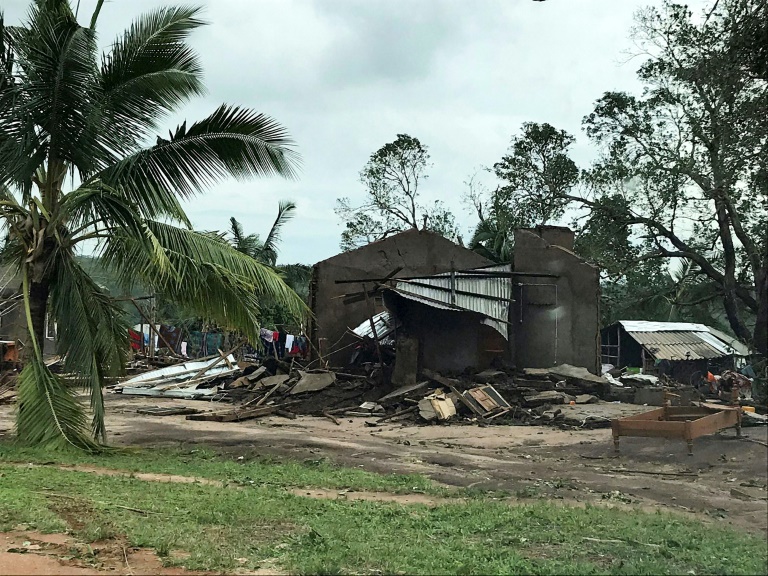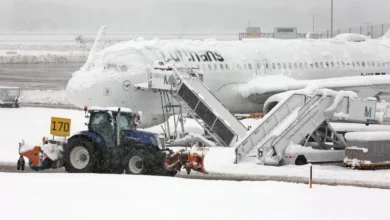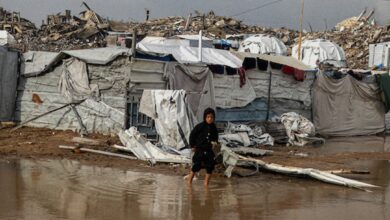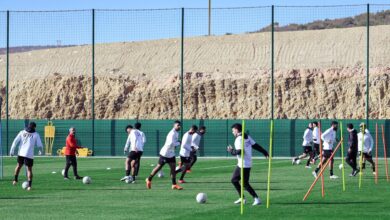
Heavy rains from a powerful cyclone lashed northern Mozambique Saturday, sparking fears of flooding as aid workers arrived to assess the damage, just weeks after the country suffered one of the worst storms in its history.
Cyclone Kenneth, a Category Three storm on the hurricane scale, made landfall in Mozambique’s Cabo Delgado province late Thursday after swiping the Comoros islands. It made landfall a day later, killing one person and wrecking thousands of homes.
“Tropical Cyclone Kenneth has now ‘stalled’ over Cabo Delgado province of northern Mozambique, where it is expected to bring heavy rains in the coming days,” said OCHA, the UN’s humanitarian coordination office, adding that it would remain in the area “for at least two days.”
“The stalling of the weather system is likely to cause significant flooding in Cabo Delgado, as well as high rainfall in southern Tanzania, over the next 10 days,” it warned.
Mozambique’s emergencies agency, the INGC, reported a death caused by a falling coconut tree in the port city of Pemba, Cabo Delgado’s provincial capital, along with severe flooding, mudslides and widespread power outages.
It said Kenneth — which has now receded into a tropical depression — had damaged or destroyed 3,300 homes while about 18,000 people were housed in emergency shelters.
On Saturday morning, emergency workers including Brazilian soldiers, OCHA personnel and officials from the UN children’s agency UNICEF, arrived in Pemba to assess the damage.
“The INGC tell us to come here to make an evaluation of the situation,” Captain Kleber Castro of the Brazil rescue service told AFP on the tarmac at Pemba airport.
“Pemba had a minimal disaster impact. But we really need to know about the cities with 90 percent damage. Now we look for some aircraft and evaluate all the locations,” he said.
On the tourist island of Ibo, home to 6,000 people, 90 percent of homes had been flattened, according to a spokesman for the INGC, Antonio Beleza.
“It looks like the island has been bombed… It is biblical,” said Kevin Record, a South African tour operator and owner of a hotel on Ibo.
The work of rescuers has been hamstrung by damaged infrastructure, including communications.
“A lot of people can be impacted in the region where the flooding is large and widespread,” said Castro.
“The most difficult thing is transportation — we don’t have helicopters yet. We need a lot of support, if you can help us we need support from helicopters.”
Communities in central Mozambique are still reeling from Cyclone Idai, which hit on the night of March 14-15, causing killer floods that swept away homes, roads and bridges.
The storm also smashed into Zimbabwe and Malawi. In the three countries, more than a thousand lives were lost, and damage is estimated at around $2 billion (1.8 billion euros).




